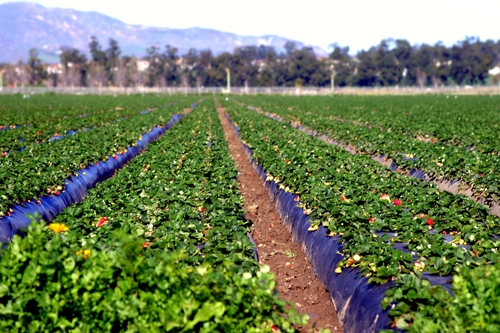By Ernie Neff

A University of Florida Institute of Food and Agricultural Sciences economist says U.S. imports of large amounts of Mexican fruits and vegetables create “a huge challenge for the (Florida) industry.” Zhengfei Guan addressed this topic at the Florida Agricultural Policy Outlook Conference in Wimauma on Feb. 26. Guan works at the Gulf Coast Research and Education Center, where the conference was held.
Guan says imports of Mexican strawberries, tomatoes, bell peppers and blueberries have boomed in the past 10 to 15 years and now exceed Florida production of those crops.
He says the North American Free Trade Agreement, Mexican subsidies of fruit and vegetable industries and Florida’s much higher labor costs are major reasons the Mexican imports outnumber Florida production.
Mexico is now a major exporter of orange juice to the United States as well, Guan says. “Mexico was not a major player in the (orange) juice market back in 2002, 2003,” he says. “But now it’s a major player. It’s like Brazil.” Brazil has been exporting huge amounts of orange juice to the United States for decades. Guan says Mexico is likely to surpass Brazil as the largest exporter of orange juice to the United States.
Guan discusses solutions to the problem of Mexican imports. “The best solution is to address the Mexican subsidization issue,” he says. “The second thing is to reform the (H-2A) labor program” which allows temporary foreign agriculture workers into the United States. He says the H-2A program has “a lot of bureaucracy, high costs and high wage rates.” Finally, Guan says mechanical harvesting of Florida fruits and vegetables would help reduce the state’s labor costs.
Hear more from Guan:









